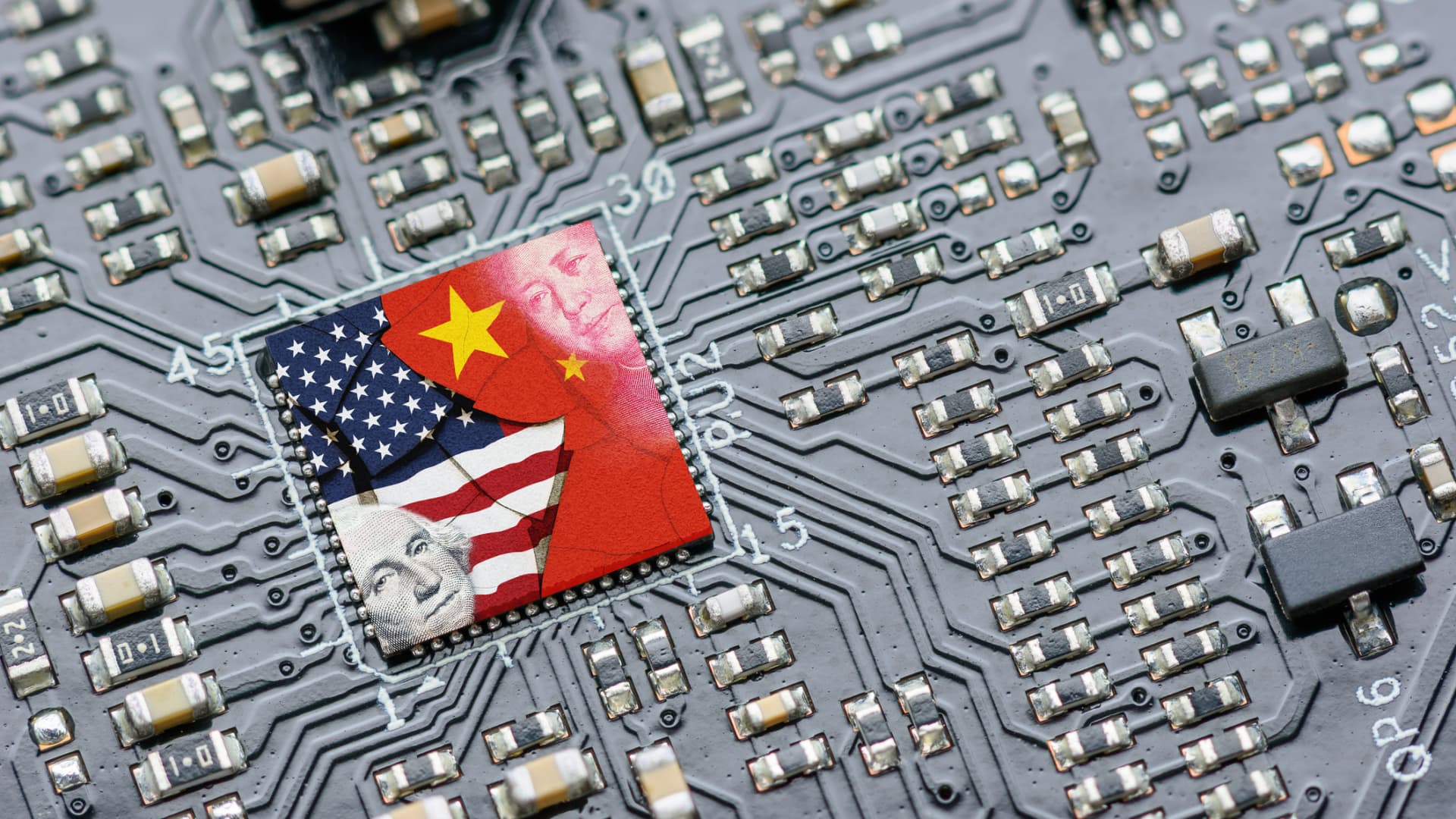
China is enforcing export restrictions on two niche metals that play a crucial role in the manufacturing of electronics and semiconductors, as the technology battle with the United States and Europe intensifies.
The spotlight is on germanium and gallium, the two metals in question.
But what are they and how important are they?
What is the reason behind China’s export constraints on these metals?
China and the United States have been engaged in a technology trade war that has been escalating since 2019. To cut China off from vital technology components and semiconductors or chips, the United States has employed trade blacklists and extensive export restrictions.
These technological components have become a focal point in the battle between the two superpowers.
China has not responded much thus far, but in May, Beijing labeled the U.S. chip firm Micron as a “major security risk.” Now, China is turning to areas where it holds some strength – metals and materials used in electronics and semiconductors.
China’s commerce ministry announced on Monday that new regulations will require exporters of gallium and germanium to obtain a license for shipping these metals. Beijing introduced these new rules on national security grounds.
What are germanium and gallium?
Germanium and gallium are metals that do not occur naturally. They are instead created, typically as by-products of refining other metals.
Germanium, a silvery-white metal, is produced as a by-product of zinc production. On the other hand, gallium, a soft, silvery metal, is a by-product of processing bauxite and zinc ores.
What are germanium and gallium used for?
Germanium has multiple uses, including in solar products and fiber optics. This metal is transparent to infrared radiation and can be utilized in military applications such as night-vision goggles.
Solar panels that contain germanium have applications in space.
Gallium is used in the manufacturing of the gallium arsenide chemical compound, which can be used for producing radio frequency chips for mobile phones and satellite communication, among others. This compound is also a crucial material in semiconductors.
Which country is the top producer of these metals?
China produces 60% of the world’s germanium and 80% of gallium, according to the Critical Raw Materials Alliance, an industry body.
Gallium arsenide is a complex material to produce, and only a few companies in the world have the capability to do so. One of them is located in Europe, while the others are in Japan and China, as stated by the CRM Alliance.
How significant are China’s export restrictions?
“A warning shot, not a death blow,” said Eurasia Group in a note on Monday.
“However, these latest measures have a more limited scope, and while the new rules require Chinese exporters to obtain a license, there is no automatic ban on exports to specific countries or end-users.”
The United States and Europe do not import large amounts of these materials. In 2022, according to government figures, the United States received $5 million worth of gallium metal and $220 million worth of gallium arsenide.
Germanium intake was higher, with the country importing $60 million worth of the metal, while the European Union imported $130 million worth of germanium in 2022, according to data from S&P Global Market Intelligence.
Other countries also have the capability to produce these metals. Belgium, Canada, Germany, Japan, and Ukraine can manufacture germanium. As for gallium, Japan, South Korea, Ukraine, Russia, and Germany are producers.
Furthermore, there are potential substitutes for these metals.
China’s scale allows it to produce them at a lower cost than other countries, but Eurasia Group points out that Beijing’s actions will have a “limited impact on global supply given the targeted scope.”
“It is a shot across the bow intended to remind countries including the United States, Japan, and the Netherlands that China has retaliatory options and to thereby deter them from imposing further restrictions on Chinese access to high-end chips and tools,” Eurasia Group said.
Denial of responsibility! VigourTimes is an automatic aggregator of Global media. In each content, the hyperlink to the primary source is specified. All trademarks belong to their rightful owners, and all materials to their authors. For any complaint, please reach us at – [email protected]. We will take necessary action within 24 hours.


